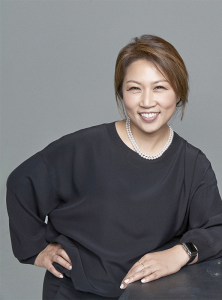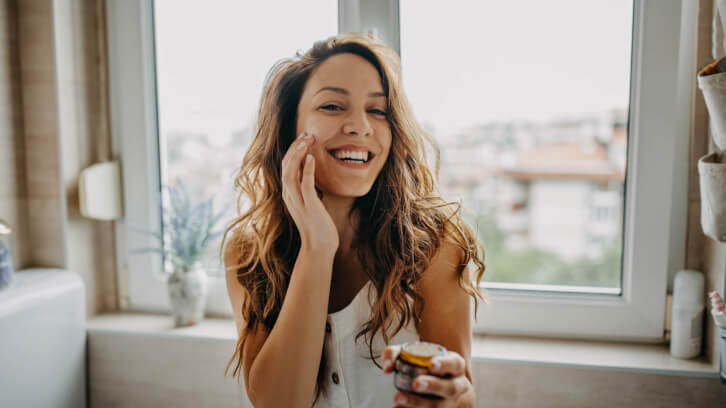In the early days of this movement, definitions of clean beauty varied. It means different things to different people and depends on which beauty brands they use, where they live, and where they purchase their products.
Fast forward to the present, and efforts by beauty retailers and brands to define what clean beauty means have gone a long way toward creating a more consistent philosophy behind clean beauty.
Voesh is one of the pioneering clean beauty brands in the skincare category and represents what this movement is all about. In this interview, Voesh Corp CEO Vera Oh explains how the business has been defined by its philosophy and how it has helped it build a loyal consumer base.
CosmeticsDesign-USA: How has the skincare category changed over the past decade, and what did clean beauty mean when your brand started?
Bella O: Ten years ago, in 2013, we started Voesh New York as a hand and foot care business for the professional beauty industry. Up until then, I had worked in electronics, so I didn’t have much knowledge about beauty products. I had to immerse myself in studying ingredients, formulations, cosmetic regulations and laws.
I distinctly remember being surprised by the lack of regulation and the widespread use of unknown and potentially harmful chemicals in skin care products, especially professional products. Around that time, the “clean eating” movement was gaining momentum and beginning to impact the beauty industry. This shift towards clean beauty included removing harmful or questionable ingredients from formulations.
CDU: When did clean beauty become important? And how has Voesh adapted its marketing to this movement?
VO: At the end of 2013, we took the important step of labeling our products as “vegan” and educating our customers about the positive changes we had made. We have removed potentially harmful ingredients such as parabens, benzophenone, and triclosan from our formulations. In addition to this, we took the bold decision to align our formulations with European Union (EU) regulations and increase transparency by disclosing fragrance allergens on the label. This was a bold move for a small company, especially a fledgling business like ours, but we were determined to make it happen.
We have removed over 400 additional ingredients, over and above the 1,680+ ingredients currently banned in the EU. Looking back, our customers appreciated what we were doing, but they didn’t fully understand its importance. For the first few years, we focused primarily on educational activities aimed at both technicians and end-users, with the overarching goal of ensuring safety.
CDU: What does clean beauty mean to Voesch?
VO: Clean beauty is truly the cornerstone of our brand identity. It’s more than just a marketing tagline. It embodies our dedication and is the central reason for our existence. In our opinion, the concept of “clean” should not be stagnant, but should be constantly evolving. We are committed to providing beauty products that are clean, transparent, ethical, and always cruelty-free. We approach this mission with an unwavering mindset of continuous improvement and progress.
CDU: How can brands prove their clean beauty claims?

VO: Verifying clean beauty claims requires a multifaceted process, as there are no official rules and regulations. It’s important to know that “clean beauty” is not regulated by official standards, so it’s up to brands to be transparent and honest. One way to support these claims is to fully list all ingredients on the product label, including a clear list of fragrance allergens and those that are not included.
Third-party testing, such as a Cosmetic Product Safety Report (CPSR) or allergen testing by a dermatologist, adds credibility. Certifications such as the EWG seal can also increase confidence. “Clean beauty” can be subjective, so it’s important for brands to educate their customers and avoid misleading claims. Brands also need to stay open to new science and data to continually produce better products.
CDU: Where can brands that advocate clean beauty go wrong?
VO: Some brands use “clean beauty” as a marketing trend, even if their products aren’t actually clean. They may say “natural,” “organic,” or “clean” without evidence. This can be misleading to customers.
CDU: How will Voesh continue its clean beauty philosophy?
VO: We believe that clean beauty is the future, not a fad or trend. Rather, it constitutes the future of the entire beauty industry. Over the past decade, we have consistently evolved toward a state of cleaner formulations, ethical integrity, transparency, and effectiveness. Our dedication is unwavering and drives us to push the boundaries of an era of cleaner, better clean beauty. Three years ago, we began a journey that led to the remarkable accomplishment of creating a patent-pending vegan probiotic ingredient by fermenting Chinese cabbage. This ingredient strengthens the skin’s natural defenses and improves overall skin health. This fits perfectly with our commitment to green chemistry and future innovative approaches.
Clean beauty is about continuous learning and showing care for people. No one is perfect when it comes to “clean beauty,” so the entire industry needs to invest time and effort into green chemistry while maintaining a mindset of daily improvement.


